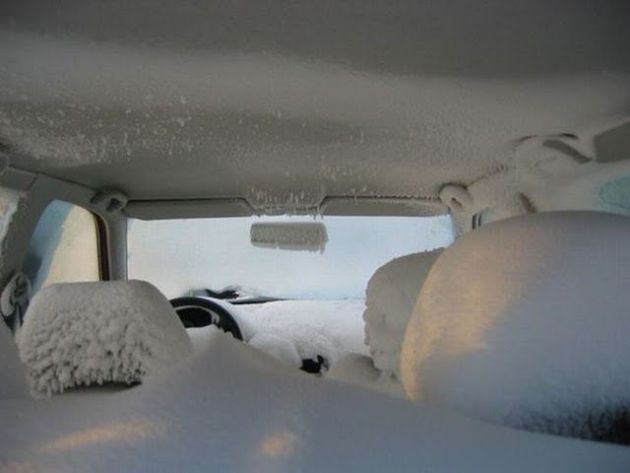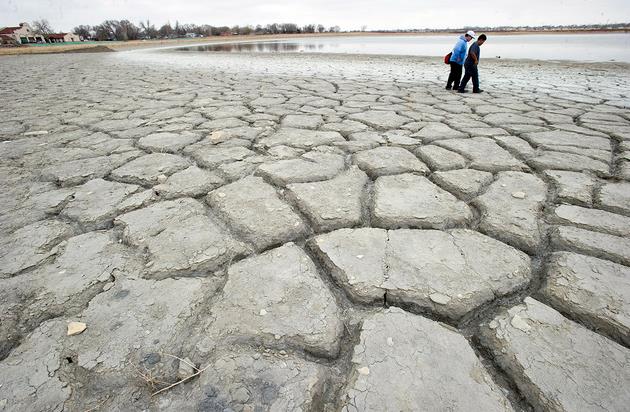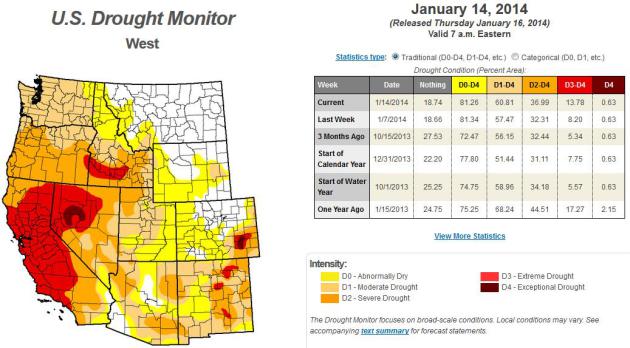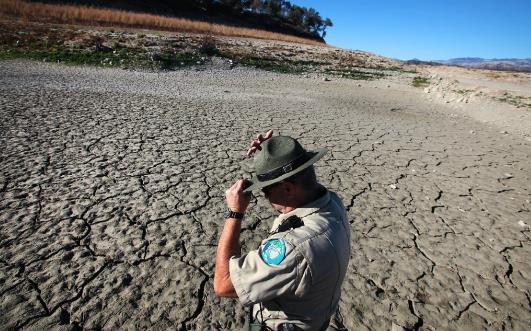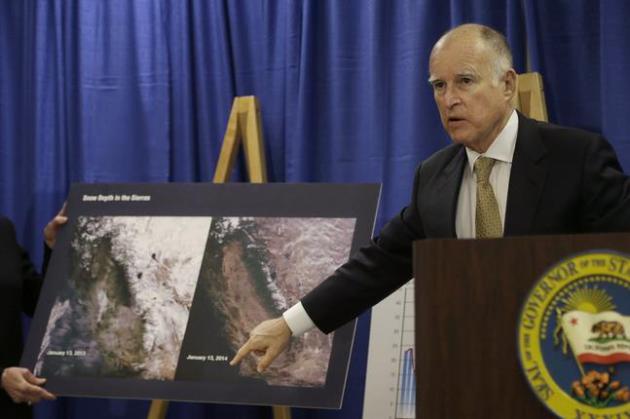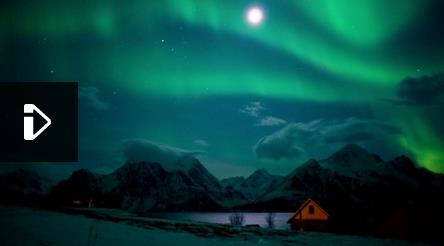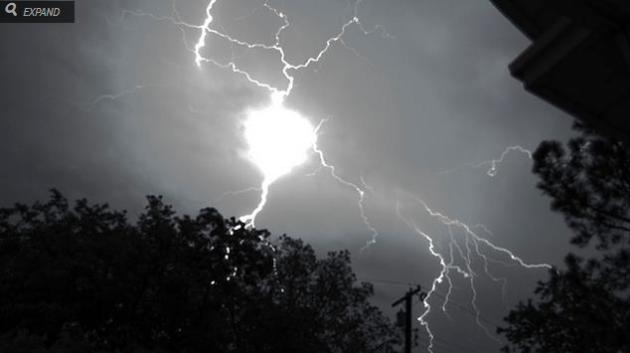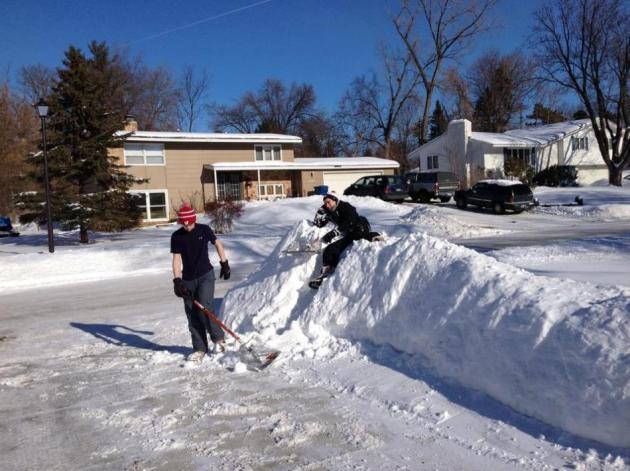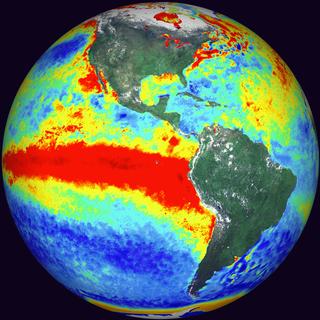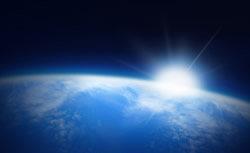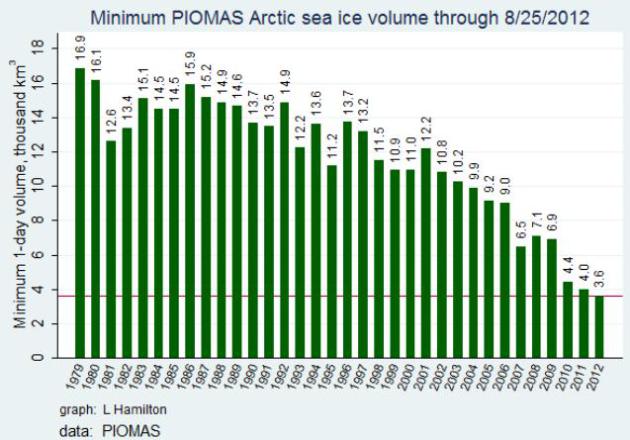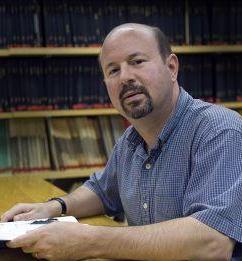Arctic Sequel
Before
you let out a shrill primal scream let me gently remind you that
average temperatures are on the rise again, for the first time since
July. Since December 21 we've picked up 32 minutes of daylight. But
nights are still long - a snow-covered Canada brewing up an ocean of
numbing air - lapping south of the border in waves. And we have
beachfront property.
Temperatures tumble today, and in spite of
bright sun, may be unable to climb much above 0F Tuesday, again Thursday
of this week. Double-digit negative numbers are possible at night.
Although not as cold as January 6, the coldest since 1997, wind chills
will dip into the -20 to -30F range later this week. Typical Minnesota
cold, but probably not polar-vortex-school-closing-cold.
A
non-stop parade of blustery clippers yanking cold air south in their
wake brings up communication challenges for meteorologists. Do we
publish the 24-hour maximum temperature for tomorrow, even if the "high"
for the day comes at midnight, or the high during normal working hours,
when most people are awake? Why should it be easy.
I still don't see significant storm potential here into early February.
Super Bowl weather February 2? AM rain showers, then clearing with 40s, gusty winds & falling temperatures.
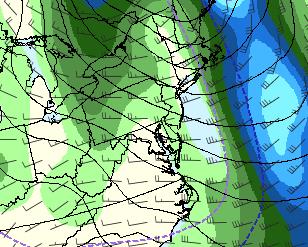
 Super Bowl Weather Preview.
Super Bowl Weather Preview.
It's still early, the big game at New Jersey's Meadowlands (outdoor)
stadium a little less than 2 weeks away. GFS guidance above, valid
Sunday evening, February 2, shows the brunt of the rain offshore, a
stiff west breeze and clearing skies over northern New Jersey. Not a
blizzard in sight, at least not yet.
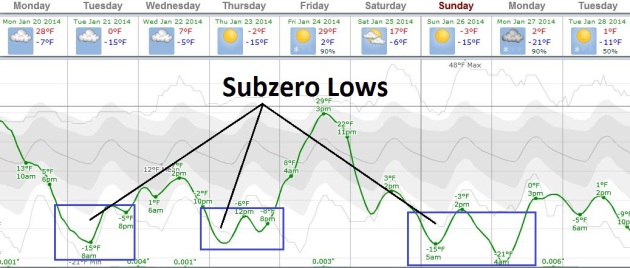
Numbing,
But Probably Not School-Closing Cold. Expect subzero starts to Tuesday
and Thursday, another wave of arctic air arriving late Saturday into the
first few days of next week. The ECMWF solution (above) is colder than
the GFS solution - I hope it's wrong. Graphic: Weatherspark.
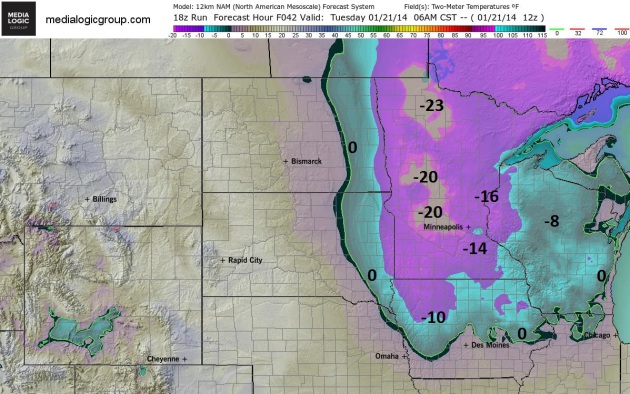 Tuesday Morning Wake-up Temperatures
Tuesday Morning Wake-up Temperatures.
NOAA's NAM model shows double-digit negative numbers across much of
Minnesota Tuesday morning at 6 AM, wake-up readings as cold as -20 from
Willmar to St. Cloud and Wadena. Expect a low in the Twin Cities around
-12F in the downtowns, as cold as -17 in the suburbs. 2-meter NAM
temperatures courtesy of NOAA and Ham Weather.
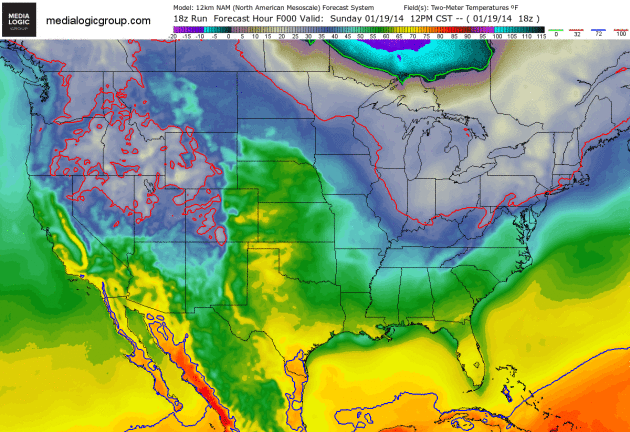 A Massive Canadian Leak
A Massive Canadian Leak.
Although the sun angle is now noticeably higher, and daylight is
longer, we still haven't been able to compensate for long nights and a
snow-covered Canada brewing up numbing airmasses. Although not as cold
as January 7-8 this next surge will get your attention. 84-hour NAM
forecast surface temperatures courtesy of NOAA and Ham Weather.
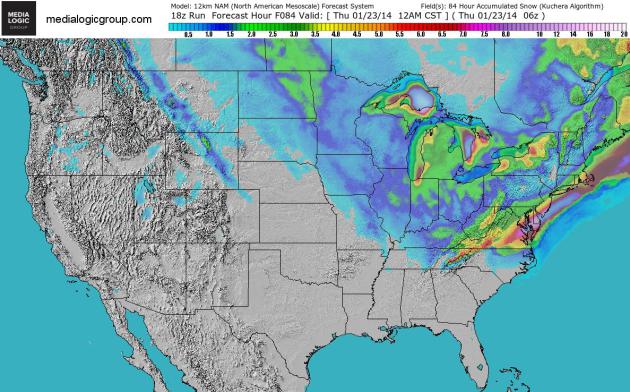 Snow Potential Mid Atlantic To Cape Cod?
Snow Potential Mid Atlantic To Cape Cod?
The ECMWF (European) solution keeps most of the snow offshore, but
NOAA's NAM model prints out accumulating snow from near Richmond and
Washington D.C. to Wilmington, Cape May, Long Island and Cape Cod. Later
today we should have a better idea if the snow potential is real.
Otherwise we expect primarily lake-effect snows into Thursday; unusually
dry weather continuing over the western USA.
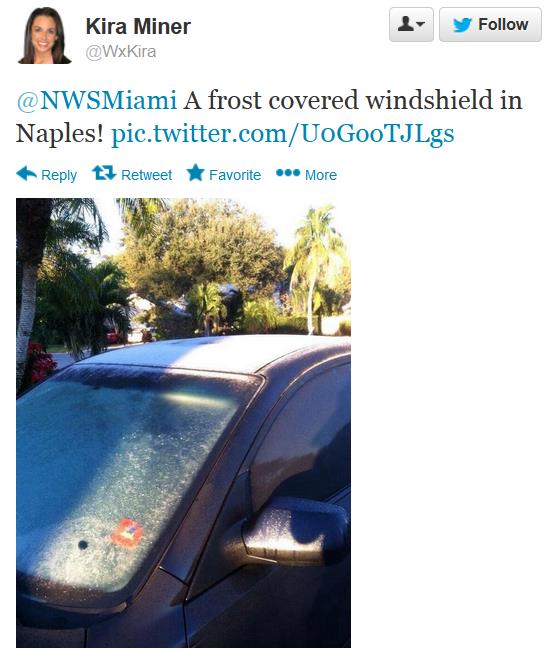
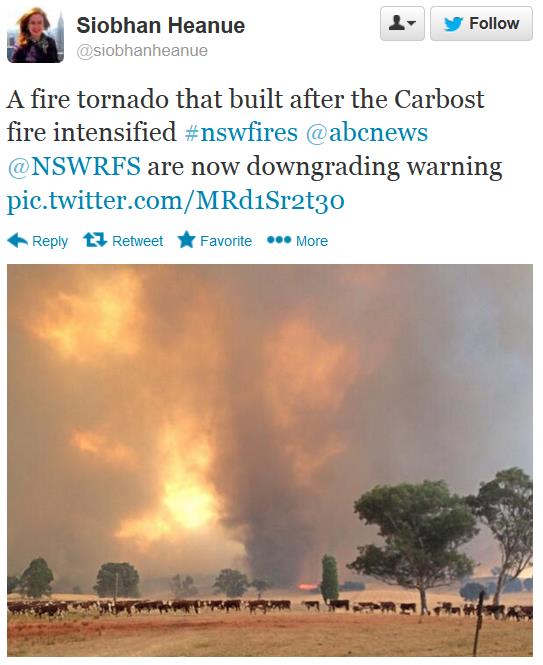 Fire Tornado In Australia
Fire Tornado In Australia.
In 40 years of tracking the weather I can't remember ever seeing
anything quite like this - symptoms of the massive blazes underway in
Australia. Details via
Twitter.
Drought Disaster Declared In Utah, 10 Other States. Details from
The Salt Lake Tribune: "
Federal
officials have designated portions of Utah and 10 other drought-ridden
Western and Central states as primary natural-disaster areas,
highlighting the financial strain the lack of rain is likely to bring to
farmers in those regions. In addition to 12 counties in Utah, the
announcement by the U.S. Department of Agriculture on Wednesday included
counties in Colorado, New Mexico, Nevada, Kansas, Texas, Arkansas,
Hawaii, Idaho, Oklahoma and California..."
File photo credit: "
In
this April 2, 2013 file photo, Davis Nixon, left, and Jose Ponce, walk
on the dry shores of Minnequa Lake in Pueblo, Colo. Federal officials
have designated portions of 11 drought-ridden western and central states
as primary natural disaster areas, highlighting the financial strain
the lack of rain is likely to bring to farmers in those regions. The
announcement by the U.S. Department of Agriculture on Jan. 16, 2014,
included counties in Colorado, New Mexico, Nevada, Kansas, Texas, Utah,
Arkansas, Hawaii, Idaho, Oklahoma and California." (AP Photo/Pueblo Chieftain, John Jaques, file).
California Drought: Water Officials Look To Rules Of 70s.
The San Francisco Chronicle puts the current drought gripping California and much of the western USA into perspective; here's an excerpt: "...
While
Californians are environmentally conscious and mindful of conserving
natural resources, water demand has never been greater. The state's
population has nearly doubled since the '70s, from 20 million to 38
million, and agricultural needs remain significant: The Golden State
produces nearly half of the nation's fruits, nuts and vegetables. Last
year was the driest calendar year in California since records began in
1849, and hardly a drop of water has fallen this year. The Sierra
snowpack - used to irrigate millions of acres of farmland and to quench
the thirst of most of Californians when it melts - is 17 percent of
normal..."
"Voluntary" Efforts Not Strong Enough To Combat California's Drought. Here's a link to a video and Op-Ed at
The Los Angeles Times: "...
But,
if there is concern about a prolonged drought and there's real
uncertainty about the state's water supply given the condition of the
delta and the Colorado River and the impact of climate change, why rely
on voluntary measures to conserve water? If California wants to cut
water use, look to the desert city of Las Vegas. Sin City has enacted
some of the strictest water-use policies in the nation..."
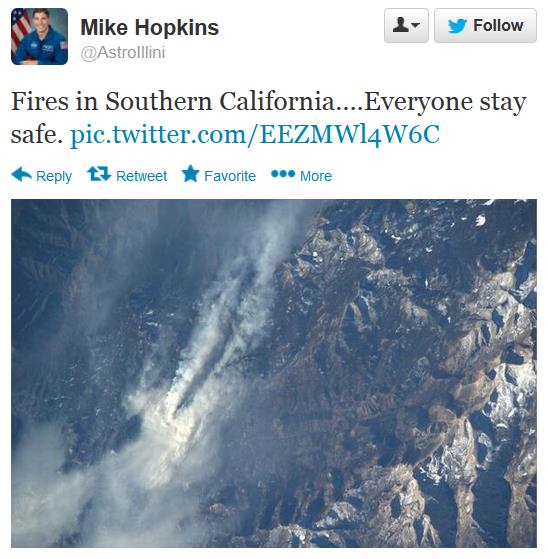 California Fire From Low Earth Orbit
California Fire From Low Earth Orbit. Mike Hopkins is an astronaut onboard the ISS, the International Space Station. Photo credit:
NASA.
California In "Drought State of Emergency", Governor Brown Declares. Here's a clip from a story at
ktla.com: "
California
Gov. Jerry Brown declared a “drought state of emergency” on Friday due
to ongoing water shortfalls following the driest calendar year in state
history. The governor said the state was facing perhaps the worst
drought since records have been kept. “We can’t make it rain, but we can
be much better prepared for the terrible consequences that California’s
drought now threatens, including dramatically less water for our farms
and communities and increased fires in both urban and rural areas,”
Brown said. “I’ve declared this emergency and I’m calling all
Californians to conserve water in every way possible...”
Photo credit above: "
Gov.
Jerry Brown points to images showing the snow depth in the Sierra
mountains on Jan. 13, 2013, left, and Jan. 13, 2014, center, while
declaring a drought state of emergency in San Francisco, Friday, Jan.
17, 2014. With a record-dry year, reservoir levels under strain and no
rain in the forecast, California Gov. Jerry Brown formally proclaimed
the state in a drought Friday, confirming what many already knew. Brown
made the announcement in San Francisco amid increasing pressure in
recent weeks from the state's lawmakers, including Democratic Sen.
Dianne Feinstein." (AP Photo/Jeff Chiu).
Is Our Sun Falling Silent?
Activity on the sun is reaching a new minimum, freakishly odd
considering we're in a normally busy peak part of the natural solar
cycle. Here's a clip and video from
The BBC: "
I've
been a solar physicist for 30 years, and I've never seen anything quite
like this," says Richard Harrison, head of space physics at the
Rutherford Appleton Laboratory in Oxfordshire. He shows me recent
footage captured by spacecraft that have their sights trained on our
star. The Sun is revealed in exquisite detail, but its face is strangely
featureless. "If you want to go back to see when the Sun was this
inactive... you've got to go back about 100 years," he says..."
Photo credit: "
Rebecca Morelle reports for Newsnight on the solar lull that is baffling scientists."
Scientists Observe Ball Lightning In Nature For The First Time Ever. Right place, right equipment, at the right time. Here's an excerpt from a hair-raising story at Medium and
Gizmodo: "...
Scientists in the Qinghai region of China were observing a thunderstorm in 2012 using video cameras and a spectrometer, a device that measures light and electromagnetic waves to identify elements. As luck would have it, these instruments recorded a five-meter-wide flash of ball lightning that stayed in the air for about 1.6 seconds.
Back in the lab, the researchers analyzed the spectrometer readings to
find large indicators of silicon, iron and calcium, elements present in
the soil of the region..."
 This LED Billboard Is The Only Way To See The Sunrise In Smoggy Beijing
This LED Billboard Is The Only Way To See The Sunrise In Smoggy Beijing.
No need for regulation; let's just go with the Ayn Rand fantasy and let
markets police themselves! Just like China, where you can't breathe the
air, drink the water or eat the food. Otherwise things are going well -
the economy on a roll! Here's a snippet from
Grist: "
Yes,
that’s a giant LED billboard displaying the sunrise — or maybe the
sunset? Who can tell, since the smog is so bad it’s impossible to tell
what time it is in real life..."
Aluminum Is Muscling It's Way Onto Autos.
Stronger and lighter than steel, fuel efficiences can be significant.
Kudos to Ford for leading the way; here's an excerpt from
The Los Angeles Times: "...
Automakers
are looking ahead to the stringent federal standard requiring a
near-doubling of fuel economy by 2025. Putting cars on a diet is the
only way to hit that goal. When Ford Motor Co.
introduced the next generation of its top-selling Ford F-150 truck this
week, the completely re-engineered pickup featured aluminum from the
hood to the tailgate. The new Ford truck is 700 pounds lighter than the
one it replaces..."
Photo credit: "An aluminum-body Audi R8 is put together in Germany. Aluminum now is the second most used material in making cars." (Audi)
"Shoveling in Shirtsleeves" photo above courtesy of Jessica Roe in Golden Valley.
Climate Stories....
Global Warming Doubles Risk Of "Extreme El Nino's". The
Exeter Express and Echo has the story; here's the introduction: "
The
risk of extreme versions of the El Niño weather phenomenon will double
over the coming decades due to global warming, new research involving
Exeter scientists has shown. The frequency of ‘extreme El Niños’ could
see a twofold increase as the eastern equatorial Pacific Ocean warms
faster than the surrounding regions. Similar events were experienced in
1982-3 and 1997-98, when sea surface temperatures exceeding 28°C
developed in the normally cold and dry eastern equatorial Pacific,
causing a massive reorganisation of global rainfall..."
Climate Change Is Too Important To Ignore. Here's an excerpt of an Op-Ed from the former U.S. Senator from Delaware, Ted Kaufman, at
delawareonline.com: "...
You
may think the probability of climate change being real is very low, but
you would have to admit that if it is a reality, the potential payoff
–the expected value – of taking action and spending money to ameliorate
its effects is enormous. Said differently, even if there is only a 1
percent chance that the more alarming predictions about climate change
are correct, the payoff of doing nothing could be catastrophic...."
Why Are Hard-Headed U.S. Military Chiefs So Worried About Global Warming? Two words: the arctic. Here's a clip from a story at
The Telegraph: "
Here's
your starter for ten. Who is about to issue a report concluding that
“climate change has had a visible and direct impact on the Arctic
region?” and that dramatic reductions in its sea ice are on the way. The
much maligned Intergovernmental Panel on Climate Change? The Green
Party? Yet another noisy environmental pressure group competing for
public attention? Nope. None of the above. It's those infamous,
sandal-wearing, green hippies in the Pentagon...
Russia – says
the independent think tank, the Center for Strategic and International
Studies – already has 25 icebreakers to defend its interests, but the US
Navy has none..."
If You See Something, Say Something. Climate scientist Dr. Michael Mann from Penn State has an Op-Ed in
The New York Times; here's an excerpt: "...
It
is not an uncommon view among scientists that we potentially compromise
our objectivity if we choose to wade into policy matters or the
societal implications of our work. And it would be problematic if our
views on policy somehow influenced the way we went about doing our
science. But there is nothing inappropriate at all about drawing on our
scientific knowledge to speak out about the very real implications of
our research. My colleague Stephen Schneider of Stanford University, who
died in 2010, used to say that being a scientist-advocate is not an
oxymoron. Just because we are scientists does not mean that we should
check our citizenship at the door of a public meeting, he would explain..."
"Neglected Topic" Winner: Climate Change. The New York Time's Nicholas Kristof has
the column; here's the intro: "
HERE’S
a scary fact about America: We’re much more likely to believe that
there are signs that aliens have visited Earth (77 percent) than that
humans are causing climate change (44 percent). That comes to mind
because a couple of weeks ago, I asked readers for suggestions of “neglected topics” that we in the news business should cover more aggressively in 2014. Some 1,300 readers recommended
a broad range of issues, which I look forward to pilfering (with
credit!) — and many made a particularly compelling case for climate
change..."
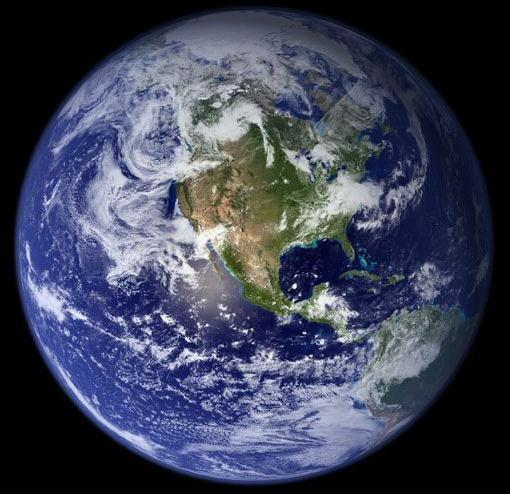 Did You Hear The One About The Serious Environmentalist? Huffington Post
Did You Hear The One About The Serious Environmentalist? Huffington Post has the Op-Ed; here's an excerpt: "
Environmentalists don't get the joke. The situation is too dire -- extreme weather
from a changing climate, toxins in our food, endangered species dying
off -- for this to be a laughing matter. At least, that's our
reputation: Serious, earnest, humorless. The reputation is partly
deserved. Most environmental activists take their work very seriously.
We see huge problems facing our world, and know that human lives are at
stake. Take a look at this new study from
the National Academy of Science, about the abrupt impacts of climate
change, and you'll know why. When you focus on issues that are so
serious, it's easy to slip into taking yourself too seriously..."
